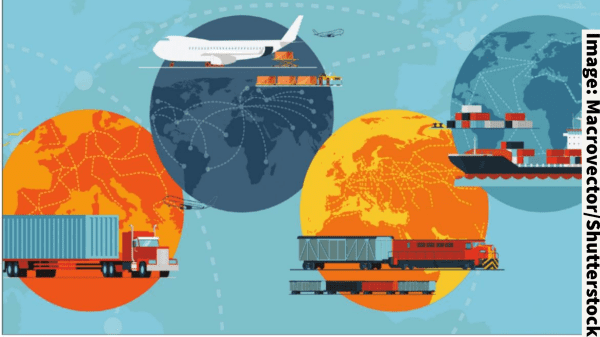Trucking industry shifts go far beyond the impact of the pandemic. Even the structure of the industry has been altered.
Not so long ago, it could be broken down into two categories—asset-owned operations and brokers. The difference is easy to explain: asset-owned companies actually own the trucks making the deliveries; brokers do not own the trucks but serve as middlemen between the trucker (or trucking company) and the shipper.
“The bipolar world between brokers and assets is fading rapidly,” says Aaron Terrazas, director of economic research for Convoy, Inc., adding that there’s now “a middle ground.”
His own firm represents a new hybrid. Convoy, he explains, is an “app-based marketplace that connects companies that move freight with mostly small and medium-sized truckers.” In short, it’s the app, rather than the broker, making the connection.
Convoy represents a middle ground in another way: it serves as a broker, but it also owns trucks.
Jeff Jerue, president of John J. Jerue Truck Broker, Inc., BB #:123544 in Lakeland, FL, sees even more fundamental changes. “Not so long ago, the vast majority [of truckers] were independent, with one, two, or three truckers. If they could drive the trucks themselves, they could make a decent, middle-class living,” he says, at least in states such as Alabama and the Carolinas.
“That’s not true anymore,” he adds. “Those guys have died off.”
In his view, the trucking industry has become “impersonal.” He laments the loss of “the personal nature of the business, which I always enjoyed.” This included face-to-face interactions and difficult conversations. “If you were fair, you’d say ‘I know this is a bad load—but I’ll make it up to you’—and we would.”
Jerue is also unhappy with some of the rules and regulations implemented by large retailers, which he views as unfair to the trucking industry. For example, according to Jerue, Walmart imposes a 3-percent charge on the gross amount of the load if a driver is late. Jerue believes this practice is “completely unreasonable.”
This is an excerpt from the Transportation & Logistics Supplement to the July/August 2021 issue of Produce Blueprints Magazine. Click here to read the whole supplement.



